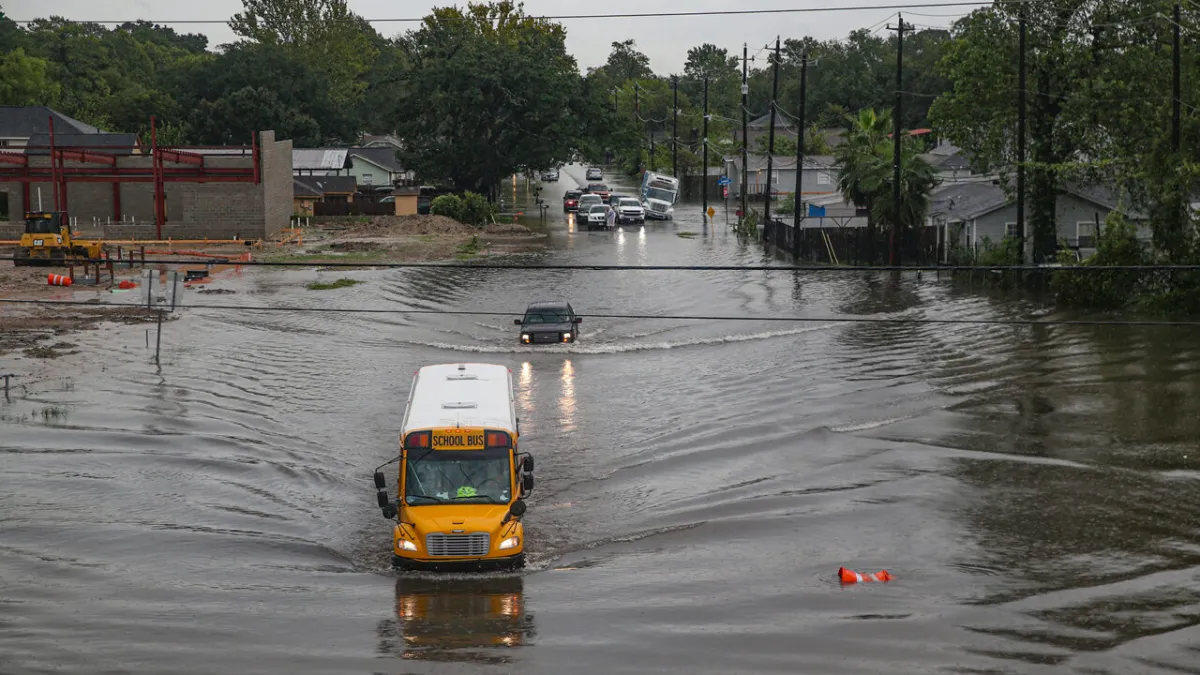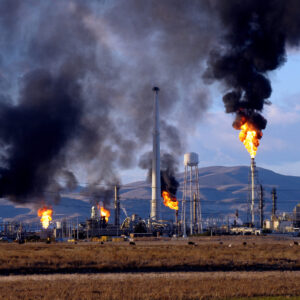Climate Crisis: A Price Too High to Ignore
The climate crisis is an urgent issue that humanity can no longer afford to ignore. It is a global emergency that threatens our very existence, with devastating impacts such as extreme weather events, rising sea levels, and loss of biodiversity. The consequences of inaction are far-reaching, affecting not just the environment, but also our economies, health, and social structures. Therefore, addressing the climate crisis is not just a matter of environmental preservation, but a crucial step towards ensuring the survival and prosperity of future generations.
The climate crisis is an issue of such magnitude that it can no longer be ignored. It is a global emergency that demands immediate attention and action. The dire consequences of inaction are far too great to be overlooked. We cannot afford to not address the climate crisis, as it poses a significant threat to our planet and future generations.
The climate crisis is a result of human activities, primarily the burning of fossil fuels and deforestation, which have led to an increase in greenhouse gas emissions. These emissions trap heat in the Earth’s atmosphere, causing global temperatures to rise, a phenomenon known as global warming. This warming is disrupting the Earth’s climate system, leading to more frequent and severe weather events, such as hurricanes, droughts, and heatwaves.
The impacts of the climate crisis are already being felt around the world. Rising sea levels, caused by the melting of polar ice caps, are threatening coastal communities and small island nations. Changes in precipitation patterns are affecting water availability, leading to water scarcity in some regions and flooding in others. Extreme weather events are causing widespread destruction and loss of life. These impacts are not only environmental but also social and economic, affecting food security, public health, and economic stability.
The climate crisis also exacerbates existing social inequalities. Vulnerable communities, particularly in developing countries, are disproportionately affected by the impacts of climate change. These communities often lack the resources and capacity to adapt to changing conditions, making them more susceptible to climate-related disasters. The climate crisis is therefore not only an environmental issue but also a social justice issue.

Despite the urgency of the situation, global action to address the climate crisis has been slow and inadequate. The Paris Agreement, a landmark international treaty aimed at limiting global warming to well below 2 degrees Celsius above pre-industrial levels, is a significant step forward. However, current national commitments under the agreement are not sufficient to achieve this goal. Moreover, implementation of these commitments has been uneven, with many countries falling short of their targets.
Climate Crisis: A Call to Action!
Addressing the climate crisis requires a radical transformation of our societies and economies. We need to transition away from fossil fuels and towards renewable energy sources. We need to protect and restore our forests, which act as natural carbon sinks. We need to change our consumption and production patterns, to reduce waste and promote sustainability. And we need to ensure that this transition is just and equitable, leaving no one behind.
The cost of inaction is far greater than the cost of action. The economic damage caused by the impacts of climate change is estimated to be in the trillions of dollars. On the other hand, the transition to a low-carbon economy presents significant economic opportunities, in terms of job creation and technological innovation. Moreover, many of the actions needed to address the climate crisis, such as improving energy efficiency and promoting sustainable agriculture, also have other benefits, such as reducing air pollution and improving public health.
In conclusion, we cannot afford to not address the climate crisis. The stakes are too high, and the consequences of inaction are too dire. We have the knowledge, the technology, and the resources to tackle this crisis. What we need now is the political will and collective action. The future of our planet, and of future generations, depends on it.
Why can’t we afford to ignore the climate crisis?
Ignoring the climate crisis could lead to irreversible damage to our planet, including extreme weather conditions, loss of biodiversity, rising sea levels, and threats to human health and food security.







продажа аккаунтов соцсетей продать аккаунт
биржа аккаунтов гарантия при продаже аккаунтов
купить аккаунт услуги по продаже аккаунтов
площадка для продажи аккаунтов платформа для покупки аккаунтов
перепродажа аккаунтов купить аккаунт
маркетплейс аккаунтов платформа для покупки аккаунтов
Account Sale Account Buying Platform
Buy accounts Buy accounts
Account Catalog Ready-Made Accounts for Sale
Account exchange Buy Account
Account exchange Account Selling Platform
Account Trading Service Secure Account Purchasing Platform
Purchase Ready-Made Accounts Account Trading Service
Profitable Account Sales Account Acquisition
Buy and Sell Accounts Account Buying Platform
Ready-Made Accounts for Sale Sell accounts
account exchange service purchase ready-made accounts
account trading platform verified accounts for sale
sell accounts website for selling accounts
gaming account marketplace account market
buy pre-made account social media account marketplace
website for selling accounts buy and sell accounts
secure account sales account trading platform
accounts for sale verified accounts for sale
accounts for sale account exchange
account exchange gaming account marketplace
account trading platform marketplace for ready-made accounts
ready-made accounts for sale https://accounts-for-sale.org
sell accounts guaranteed accounts
account purchase guaranteed accounts
profitable account sales account buying service
guaranteed accounts website for selling accounts
account sale purchase ready-made accounts
ready-made accounts for sale account market
account purchase account trading service
account store database of accounts for sale
account trading platform account selling service
database of accounts for sale website for selling accounts
account purchase account sale
website for buying accounts website for selling accounts
ready-made accounts for sale https://accounts-offer.org
guaranteed accounts https://accounts-marketplace.xyz/
guaranteed accounts https://social-accounts-marketplaces.live
account selling service https://accounts-marketplace.live/
account trading service account market
online account store buy accounts
buy account https://buy-accounts-shop.pro
account exchange service https://buy-accounts.live
ready-made accounts for sale https://accounts-marketplace.online
find accounts for sale https://social-accounts-marketplace.live
buy and sell accounts https://accounts-marketplace-best.pro
купить аккаунт https://akkaunty-na-prodazhu.pro
маркетплейс аккаунтов https://rynok-akkauntov.top
продажа аккаунтов магазины аккаунтов
продажа аккаунтов akkaunt-magazin.online
магазин аккаунтов https://akkaunty-market.live
продать аккаунт https://kupit-akkaunty-market.xyz
маркетплейс аккаунтов соцсетей https://akkaunty-optom.live
магазин аккаунтов online-akkaunty-magazin.xyz
биржа аккаунтов https://akkaunty-dlya-prodazhi.pro/
магазин аккаунтов kupit-akkaunt.online
facebook ads account buy https://buy-adsaccounts.work/
buy facebook account buy facebook advertising accounts
facebook ad account buy https://buy-ad-account.top
buy a facebook account https://buy-ads-account.click
buy facebook ads account buy facebook ads manager
buy facebook profile buy facebook account
buy fb account https://ad-account-for-sale.top/
fb account for sale https://ad-accounts-for-sale.work
buy google ads agency account https://buy-ads-account.top
buy old google ads account buy-ads-accounts.click
buying facebook ad account buy ad account facebook
buy google ads verified account https://ads-account-for-sale.top
google ads accounts for sale https://ads-account-buy.work
buy aged google ads account https://buy-ads-invoice-account.top
google ads account seller buy google ads verified account
buy google ads threshold account https://buy-ads-agency-account.top
buy google ad threshold account https://sell-ads-account.click
buy google ads threshold accounts buy aged google ads account
business manager for sale buy-business-manager.org
buy google adwords account https://buy-verified-ads-account.work
buy facebook ads accounts and business managers https://buy-bm-account.org
facebook business manager account buy buy business manager facebook
facebook bm account https://buy-verified-business-manager.org
facebook business manager for sale buy-business-manager-acc.org
facebook bm for sale facebook bm account
buy facebook business manager verified https://buy-business-manager-verified.org/
buy verified facebook business manager buy-bm.org
facebook business manager account buy https://buy-business-manager-accounts.org/
buy tiktok ads accounts https://buy-tiktok-ads-account.org
buy verified facebook business manager facebook business manager for sale
tiktok ads account buy https://tiktok-ads-account-buy.org
buy tiktok ads accounts https://tiktok-ads-account-for-sale.org
buy tiktok ad account tiktok ad accounts
buy tiktok business account https://buy-tiktok-ad-account.org
buy tiktok ads https://buy-tiktok-ads-accounts.org
buy tiktok ads https://tiktok-ads-agency-account.org
buy tiktok ads accounts https://buy-tiktok-business-account.org
buy tiktok ad account https://buy-tiktok-ads.org
Can you be more specific about the content of your article? After reading it, I still have some doubts. Hope you can help me.